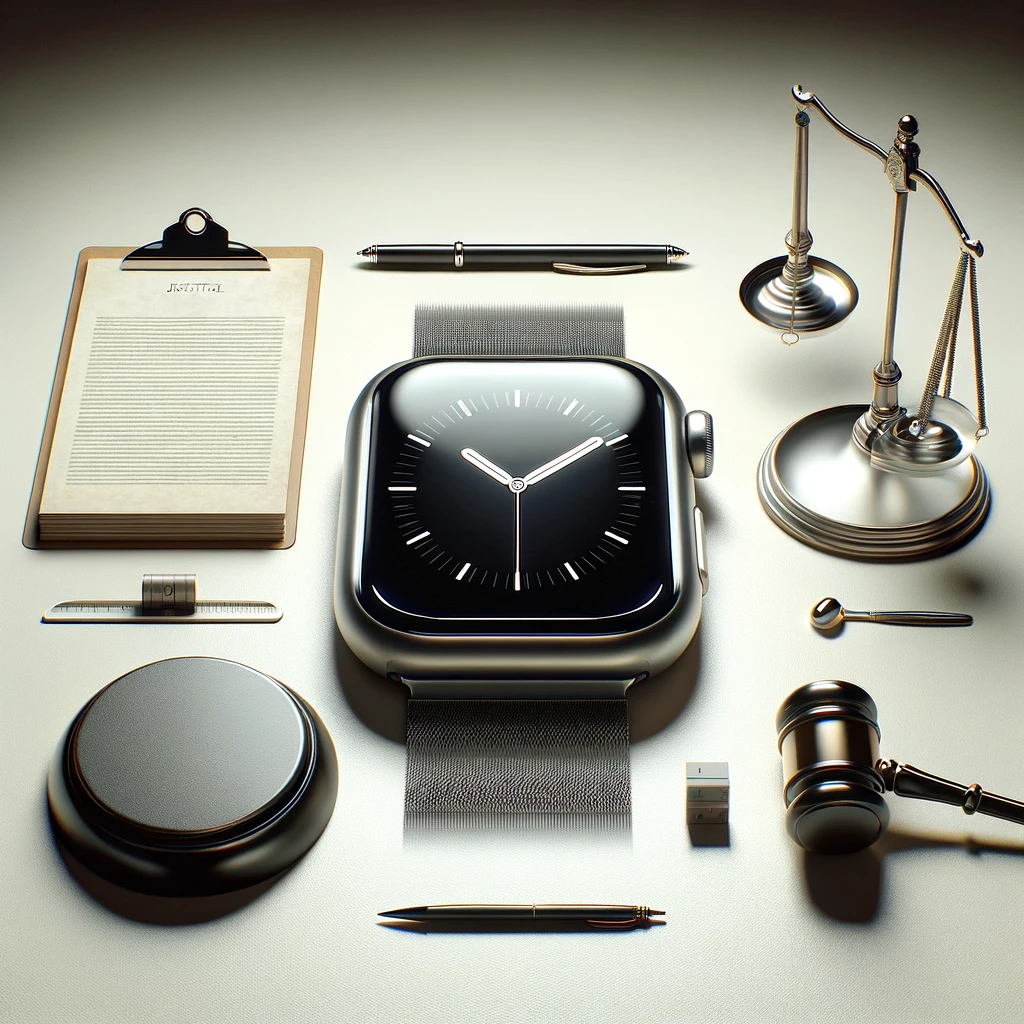
An Import Ban
In late October 2023, the U.S. International Trade Commission (ITC) ordered a domestic import ban[1] on Apple Watch Series 6 models and later, which feature blood oxygen monitoring. This was the latest development in an ongoing dispute between Apple, the world’s most valuable company, and Masimo, a California-based medical technology company. What happens next will depend on President Biden’s decision to either veto the order or allow it to proceed.
Claims before The ITC
Petitioning the ITC under Section 337 of the Tariff Act of 1930, Masimo alleged that Apple Watches infringed several of its patents related to pulse oximetry.[2] The ITC, which hears IP disputes over imported products, is a popular forum for patent holders seeking injunctive relief in high-stakes patent cases. Cases move quickly, often go to trial, and can result in powerful remedies in the form of import bans, like the limited exclusion order (LEO) issued in this case.
Presidential Review
The LEO is set to be enforced on December 26, 2023. Until then, President Biden can strike down the ban “for policy reasons” through a presidential disapproval.[3] This presidential review power is rarely exercised—only six times since the ITC’s creation has a President nullified an exclusion order.[4] President Carter was the first to override an ITC order in 1978, followed by President Reagan several times in the 1980s, and most recently President Obama in 2013.[5] While presidents have generally been given broad discretion in their policy justifications for disapproval, such reasons have included protecting international economic relations, preventing detriment to the national economic interest, and avoiding redundancy in administering domestic trade laws.[6]
Notably, Apple was at the center of Obama’s disapproval. The ITC granted an exclusion order banning the import of iPhones that infringed Samsung patents, which Obama then vetoed. The patents at issue in that case, however, were standard-essential patents (SEPs), which are necessary to practice a technical standard. Obama’s veto was primarily motivated by concern that the order would create “patent hold-up.”[7] This inefficiency occurs when a SEP holder demands exorbitantly high licensing fees from a party that has already made significant investments in a product that relies on this SEP.[8]
The patents in this dispute, however, are not SEPs, so there is less concern over patent hold-up. Additionally, in February 2023, President Biden declined to veto the Commission’s LEO in a separate case, where Apple was banned from importing its Watches that infringed the complainant AliveCor’s electrocardiogram-related patents. The LEO in that case was stayed, as the patents at issue were deemed invalid in a U.S. Patent and Trademark Office administrative decision that AliveCor is appealing.
Path Forward
Even if President Biden declines to strike down the LEO, Apple can appeal the Commission's decision to the Federal Circuit. In fact, Apple has already filed a motion to stay the Commission’s LEO pending its appeal.[9] In its motion, Apple argued in part that enforcing the LEO would harm the public interest by hindering medical research and harming consumers who rely on their Apple Watches. Apple could also settle with Masimo, enter into a licensing agreement, or modify its Watches so that they do not infringe Masimo’s patents.
Regardless of Biden’s decision in December, one thing is nearly certain: Apple’s patent woes are far from over. In 2022, Apple’s Watch sales generated an estimated $14-18 billion in revenue for the nearly $3 trillion company, which holds 56% of the U.S. wearables market share. The company has not shown any indication of backing down from its perch at the top of the consumer electronics world, nor have patent holders shown signs of letting up on asserting their IP claims against the tech giant. But the question remains—how much is Apple willing to pay?
[1] Certain Light-Based Physiological Measurement Devices and Components Thereof, Inv. No. 337-TA-1276, Limited Exclusion Order for Apple, Inc. (Oct. 26, 2023).
[2] Certain Light-Based Physiological Measurement Devices and Components Thereof, Inv. No. 337-TA-1276, Complaint (June 29, 2021).
[3] 19 U.S.C. § 1337(j).
[4] Sidak, Gregory (2016) "International Trade Commission Exclusion Orders for the Infringement of Standard-Essential Patents," Cornell Journal of Law and Public Policy: Vol. 26: Iss. 1, Article 4.
[5]Id.
[6]Kennedy, Kevin C. (1987) "Presidential Authority under Section 337, Section 301, and the Escape Clause: The Case for Less Discretion," Cornell International Law Journal: Vol. 20: No. 1, Article 4.
[7] Sidak, Gregory (2016) "International Trade Commission Exclusion Orders for the Infringement of Standard-Essential Patents," Cornell Journal of Law and Public Policy: Vol. 26: Iss. 1, Article 4.
[8] Jonas Hein, The Recent DOJ and FTC Policy Suggestions for Standard Setting Organizations - The Way out of Standard-Essential Patent Hold-Up, 2 NYU J. INTELL. PROP. & ENT. L. 339 (2013).
[9] Certain Light-Based Physiological Measurement Devices and Components Thereof, Inv. No. 337-TA-1276, Respondent Apple Inc.'s Motion to Stay Exclusion and Cease and Desist Orders Pending Appeal and/or in Light of Potential Government Shutdown (Oct. 30, 2023).
